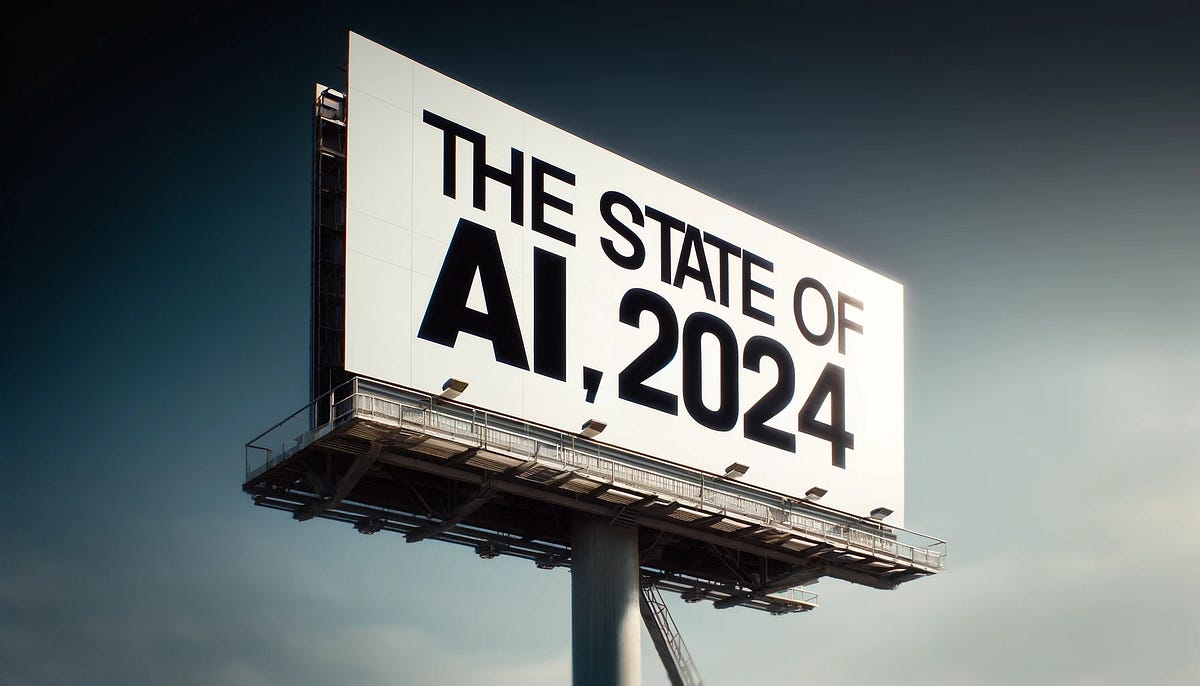The State of Generative AI, 2024

🌈 Abstract
The article discusses the current state of generative AI, exploring the contrasting narratives surrounding its progress and the potential for a "revolution" similar to past technological advancements like the printing press, electricity, and the internet.
🙋 Q&A
[01] The Hype Cycle and Continued Progress
1. What are the contrasting pictures of generative AI described in the article?
- The article presents two contrasting pictures of generative AI:
- The first is the "dying hype" - a natural development where generative AI has grabbed more attention than it can feed and more investment than it can return.
- The second is the "silent, hidden 'lull'" where the AI revolution continues to move forward, indifferent to the number of eyes it may or may not attract.
2. How does the author reconcile these contrasting pictures?
- The author cites Tyler Cowen's prediction that AI hype has subsided, but the revolution continues, similar to the patterns seen with other revolutionary technologies like the printing press, electricity, and the internet.
- Cowen argues that every revolutionary technology goes through a period of hype, calm, and then eventual revolution, and generative AI could follow a similar trajectory.
3. What evidence does Cowen provide to support his prediction?
- Cowen points to examples like the dot-com crash, the slow adoption of electricity in factories, and the delayed impact of the printing press to suggest that generative AI may be going through a "non-excitement" phase before a resurgence.
- He also mentions advances in open-source AI models and enterprise services as signs that the revolution is continuing, even if it's not grabbing public attention.
4. How does the author respond to Cowen's evidence?
- The author acknowledges that Cowen's examples may not be the most favorable evidence, as enterprises are still struggling to adopt generative AI, and open-source efforts may not matter as much as the best commercial products.
- The author suggests that the repetitive deflation of hopes could be a sign that the revolution itself is slowing down, not just the hype.
5. What is the author's overall perspective on Cowen's thesis?
- The author is unsure if Cowen's thesis can be definitively proven or falsified in the present moment, and suggests that only hindsight will reveal the truth about the revolutionary nature of generative AI.
- The author remains cautiously optimistic that the "calmer, non-hype stage" will allow for the necessary technical, social, and ethical work to be done, similar to what happened with past revolutionary technologies.
[02] The Dangers of Overhype
1. What concerns does the author raise about the overhype phase of generative AI?
- The author questions how much harm the overhype phase has done to the industry and the underlying engineering and scientific efforts.
- The author wonders if the world will ever receive generative AI with open arms, given the indifference shown towards the externalities by those enabling the technology.
- The author asks whether the world will leave the promises of exponential growth with a positive or negative sentiment, given the potential for broken trust.
2. Why does the author suggest the hype may have been unnecessary?
- The author questions whether the incredible capabilities of generative AI were enough on their own, or if the exaggerated claims and hyped narratives from company executives were necessary to ensure the field could never deliver on them.
- The author suggests that if the underlying reality of generative AI was as convincing as claimed, the need for such a strong hype and persuasive discourse may not have been necessary.
3. What is the broader question the author poses about the future of generative AI?
- The author asks whether those building generative AI can prove that it is worth being called a revolution like the printing press, electricity, or the internet, or if it will pass into the pile of forgotten technologies that never surged again after the hype subsided.
4. What is the author's hope for the future of generative AI?
- The author hopes that the "calmer, non-hype stage" will allow for the necessary technical, social, and ethical work to be done, similar to what happened with past revolutionary technologies.
- The author expresses the hope that the progress of generative AI will not take as long as the two hundred years it took for the printing press to become widely useful.